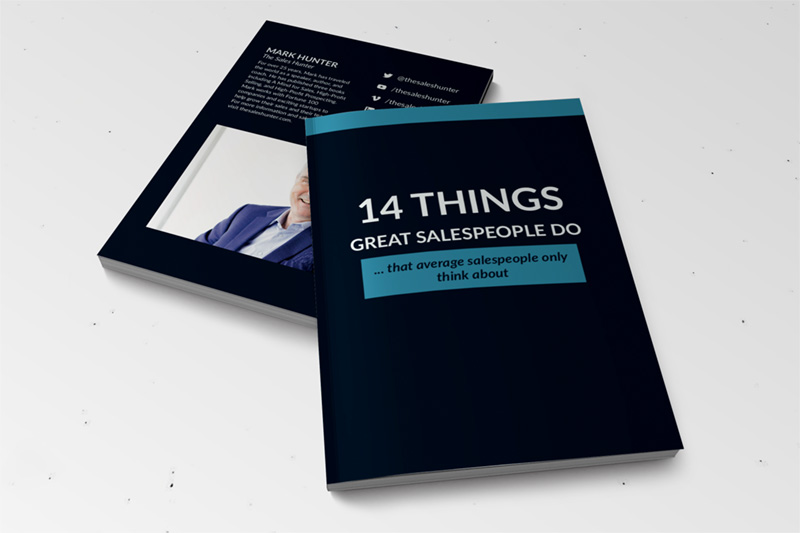 Yes, this might sound harsh, but hear me out.
Yes, this might sound harsh, but hear me out.
Your customers aren’t looking to buy your weaknesses, so why should you focus on them? Don’t!
I’m not saying to misrepresent yourself and what you sell if your customer does ask about a weakness. What I’m saying is keep your focus on your strengths.
This might sound simple, but I’ve encountered far too many salespeople who at one point or another in the sales process, without any prompting, will blurt out something like, “Oh, I apologize for this but….” And then they go on to say how a particular feature doesn’t work like they think it should.
After the sales call, I’ll ask the salesperson if they remember saying it and many times they don’t remember saying it. When I hear them say this, that tells me apologizing is part of their process and they’re doing it on a large number of their sales calls.
Some salespeople will say how they do remember saying it and then claim how they like sharing it because it helps them build credibility with the customer and show how honest they are. Sure, I like the idea of building credibility, but I feel there are other ways to do it.
The best way to build credibility is by listening to the customer and showing genuine concern for what they’re talking about by asking great follow-up questions.
Many times when a salesperson brings up a negative, the only thing they’re doing is pointing out something the customer doesn’t care about anyway — or if they do care about it, it really isn’t of great concern to them.
If the customer does ask you about something that you see as a negative, don’t run from the question. Rather, answer it and do it truthfully, but at the same time, match the negative up with a positive. Answering the question in this manner keeps you and the customer in the right frame of mind.
Customers prefer to buy from a positive perspective. And, of course, salespeople do a much better job of selling from the positive also.
Copyright 2012, Mark Hunter “The Sales Hunter.” Sales Motivation Blog.












